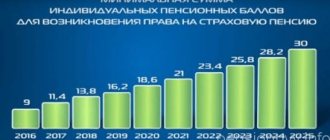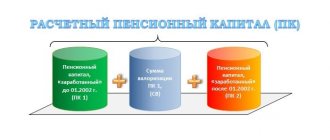Increasing the retirement age in Russia
Editorial
Promdevelop editorial team
The significant drop in oil prices in 2015 seriously undermined the financial stability of one of the largest exporters of black gold, the Russian Federation.
The decisive dependence of the country's budget on oil and gas sales led to the rapid melting of the reserve fund and an increase in the pension fund deficit. During this period, many domestic and foreign economists began to raise the issue of the need for pension reform, primarily raising the retirement age in Russia .
“Despite the late start on this issue, it is proposed to introduce a fairly long transition period. It is proposed to start it in 2019 in order to gradually achieve retirement at 65 years for men in 2028 and 63 years for women in 2034,” Dmitry Medvedev said at a meeting of the Cabinet of Ministers. Read more in the article: Dmitry Medvedev announced an increase in the retirement age to 65 and 63 years from 2019.
Retirement age for men in the Russian Federation
From 1932 to the present (1- in accordance with Law 400-FZ) on the territory of the Russian Federation for men, the age limit for transferring to an old-age pension is 60 years. There are preferential categories of men (military, workers employed in hazardous conditions), for whom the retirement age is 45, 50 or 55 years.
What benefits are available to military pensioners?
How much will the retirement age increase in Russia?
At what age will Russians retire?
The retirement age in Russia will be raised from 60 to 65 years for men and from 55 to 63 years for women.
The government proposes to do this in stages.
The transition period will begin in 2021 and last until 2028 for men and until 2034 for women.
“The younger generation still has enough time ahead simply to adapt to new borders,” Medvedev added. And the money saved by raising the retirement age “will allow us to allocate additional funds to increase pensions above the inflation rate.”
Will there be an increase in the retirement age in Russia from 2021?
Experts from the International Monetary Fund, who carried out a mission to the Russian Federation (May 2021), approved the measures taken by the Central Bank at critical moments of financial destabilization. At the same time, in order to further strengthen the economy, it is recommended to immediately begin pension reform, the cornerstone of which is a gradual increase in the age limit of future pensioners to 65 years for men and 63 years for women. Representatives of the domestic Center for Strategic Research agree with their opinion, proposing starting in 2021 the process of gradually increasing the retirement age in Russia to 63 years. On the other hand, the Minister of Labor of the Russian Federation Maxim Topilin officially stated that the employees of the institution:
- constantly carefully analyze the situation with pension payments and the assignment of pensions in all regions of the country;
- are exploring all possibilities to ensure the sustainability of the pension system.
Considering that:
- in Russia, the life expectancy of citizens is lower (66 years for men, 71 years for women) than in Europe, the USA, and Japan;
- There are additional resources to reduce the pension fund budget deficit (cancellation of some benefits for civil servants, raising the level of minimum work experience from 8 to 15 years, limiting the indexation of pensions for working pensioners).
How to apply for benefits for pensioners?
Ministry specialists consider the general process of raising the retirement age to be premature, considering it acceptable for certain categories of citizens. The existing pension system encourages voluntary later retirement. For people who apply for appointment after the established age, additional payments are made for each additional year of deferment and coefficients are applied that increase the overall pension score and the amount of the pension.
At what age will northerners retire?
Citizens who have accumulated experience in the regions of the Far North and in areas equated to the Far North, giving them the right to early assignment of an insurance pension, retain this right, but their retirement age will also be gradually raised to the level of 60 years for men and 55 years for men. women. The minimum required northern length of service for early retirement is still 15 calendar years in the Far North and 20 calendar years in equivalent areas. The requirements for general insurance experience also do not change and are 20 years for women and 25 years for men.
The transition period for raising the retirement age will also apply in cases where the northern period of service has not been fully developed. In this case, the reduction in retirement age will be calculated for the grace period of work in the northern regions. Such citizens who have worked in the Far North for at least 7 years and 6 months are assigned an insurance pension with a reduction in the generally established retirement age established in the year of retirement by four months for each full calendar year of work in these areas. When working in areas equated to the regions of the Far North, as well as in these areas and regions of the Far North, each calendar year of work in areas equated to the regions of the Far North is counted as nine months of work in the regions of the Far North.
Some northerners, however, will not have to adapt to the new retirement age, since it will not be increased for them. The changes will not affect the small indigenous peoples of the North, who, depending on their gender, retire at 50 or 55 years old, as well as northern women who raised two or more children under 8 years old - if they have the necessary northern and insurance experience, they are entitled to a pension starting from the age of 50 .
pension for northerners
Raising the retirement age in Russia
The President and the Government of the Russian Federation carefully approach the problem of implementing pension reform, taking into account that:
- with the deterioration of the general financial situation, elderly people remain the most vulnerable category of citizens, insufficiently provided with public amenities and medical care;
- it is necessary to pre-prepare the labor market, use opportunities for training and retraining of personnel, and create a sufficient number of suitable jobs.
The Ministry of Labor and other government agencies continue to analyze the proposed options for pension reform, preparatory measures, and additional opportunities to reduce the pension fund deficit.
Pension reform 2021: government manipulation or comfortable old age?
At what age will people be able to receive a social pension?
Old-age social pensions are received by older people who have no work experience.
The Ministry of Labor proposed increasing the age for receiving a social pension for women from 60 to 68 years, and for men from 65 to 70 years.
Such changes are also planned to be introduced gradually.
People with serious health problems can count on a social disability pension, regardless of age.
Why raise the retirement age?
Raising the retirement age should ensure an increase in the size of pensions for non-working pensioners and index pensions above inflation.
Also, increasing the retirement age will reduce the Pension Fund deficit and reduce the burden on the working population. For example, in 1970 there were 3.7 people of working age per pensioner. And in 2021, this ratio will change significantly: for every pensioner there will be approximately two people of working age.
The number of working population decreases by 0.4 million people annually. At the same time, 1.5–1.6 million Russians retire annually.
In addition, life expectancy is increasing in the Russian Federation. From 2000 to 2017, this figure for men increased on average by 8.5 years, to 67.5 years; for women, by 5.4 years, that is, to 77.6 years. On average, with an insurance period of about 30 years, the period of retirement for Russian women is 26 years, that is, one year of experience is practically equal to one year of pension. Foreign countries try to maintain the formula of two years of service equal to one year of pension.
For reference: according to Rosstat forecasts, by 2024 the life expectancy of Russian men will reach 72.3 years, women - 82.1 years.
Raising the retirement age in Russia: latest news
Among the sections of the presidential economic strategy for 2018-2024 is a gradual increase in the retirement age in Russia from 2021 to 63 years by 2028 or 2035. The basis for such an increase is a significant increase in GDP growth rates by the end of 2024, an increase in decent jobs, and an increase in labor productivity.
At the annual final press conference on December 14, 2021, the president announced that a final decision on increasing the retirement age had not been made. Before its adoption, there will be a wide public discussion, careful calculations of the consequences of the reform, and measures to reduce the risk of negative consequences.
Prerequisites for raising the retirement age
According to officials, improving the pension system of the Russian Federation is an urgent need, dictated by the negative demographic situation in the 90s of the last century, as well as an increase in the life expectancy of the working population.
In June 2021, legislators proposed a new bill No. 489161-7, which proposes a set of measures to change pension legislation in the Russian Federation. According to the authors of the project, the innovations will reduce the budget deficit of the Pension Fund and increase pension payments to current pensioners.
The text of the bill can be found here.
The changes will affect the following forms of pension provision:
- by old age;
- social benefits for disabled citizens;
- “northern” and preferential payments.
The project provides for a gradual increase in the standard age for retirement until 2034: up to 63 years for the female half of the Russian population and 65 years for the male half. Thus, if the innovations are legalized, the transition to the pension category for men will shift by 5 years, and for women - by 8 years (compared to the current time frame).
Let's look at the proposed legislative adjustments in more detail.
Interesting facts about pensions
- High labor intensity and short annual vacations (from 7 to 14 days) in Japan have little effect on the average life expectancy of citizens. She is one of the tallest in the world - 83.7 years. Japanese men and women retire at age 65.
- According to Russian statistical studies, in January 2017, unemployed citizens in relation to the employed labor force amounted to 5.6%. In rural areas, the unemployment rate is almost 2 times higher - 9.1%. In Moscow, the unemployed amounted to 1.6%, in the Kurgan region - 10.3%, in Ingushetia - 27.9%. Probably, these facts of differences in the place of residence of citizens should be taken into account when carrying out pension reform.
- The number of working pensioners in Russia exceeds 9.5 million people or 22% of their total number. This is due to the low amounts of pensions received, a satisfactory state of health, and the desire to continue working.
- Raising the retirement age is your personal investment chance!
What is the scheme for increasing the retirement age?
“The changes will be smooth, the increase will take place gradually,” Medvedev promised. Thus, men born in 1959 and women born in 1964 will be able to retire in 2021, at the ages of 61 and 56 years, respectively.
Men born in 1960 and women born in 1965 will be eligible to retire in 2022, at ages 62 and 57, respectively.
Men born in 1961 and women born in 1966 - in 2024, at the ages of 63 and 58 years; men born in 1962 and women born in 1967 - in 2026, at 64 and 59 years old; men born in 1963 and women born in 1968 will be able to retire in 2028, at the ages of 65 and 60, respectively.
At this point, having reached 65 years of age, the transition period of increasing the retirement age for men will end.
Women born in 1969 will have the right to retire in 2030, at the age of 61; women born in 1970 - in 2032, at the age of 62 years; women born in 1971 - in 2034, at the age of 63 years.
Retirement schedule by year of birth starting from 2019
The retirement schedule by year as part of raising the retirement age from 2021 is as follows:
| Transition period for men | ||
| Year of birth | Retirement age | Year of retirement |
| 1959 | 61 years old | 2020 |
| 1960 | 62 years old | 2022 |
| 1961 | 63 years old | 2024 |
| 1962 | 64 years old | 2026 |
| 1963 | 65 years old | 2028 |
| Transition for women | ||
| Year of birth | Retirement age | Year of retirement |
| 1964 | 56 years old | 2020 |
| 1965 | 57 years old | 2022 |
| 1966 | 58 years old | 2024 |
| 1967 | 59 years old | 2026 |
| 1968 | 60 years | 2028 |
| 1969 | 61 years old | 2030 |
| 1970 | 62 years old | 2032 |
| 1971 | 63 years old | 2034 |










